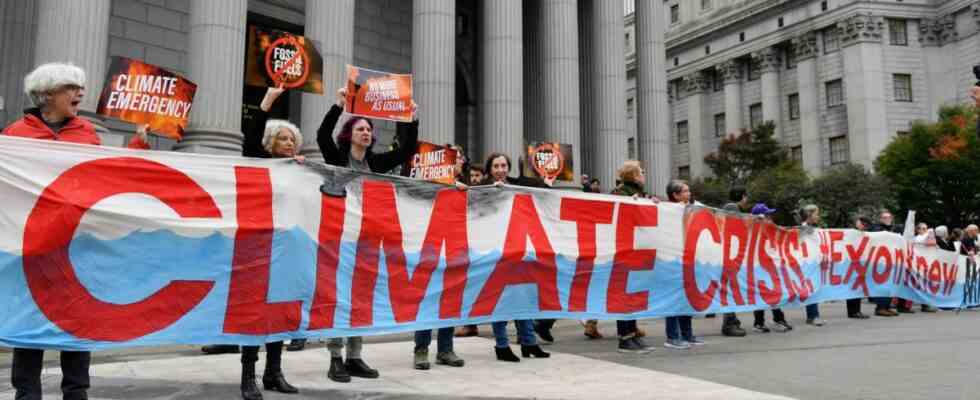The Sabin Center for Climate Change Law at Columbia Law School has set itself the task of documenting the legal proceedings relating to the climate crisis worldwide. There are hundreds, often against states. But also many against companies. In Germany, for example, against Wintershall Dea, BMW, VW, Mercedes, RWE.
The question that arises here: Do companies that earn their money with fossil fuels and the subsequent emission of CO₂, thereby causing global warming, have to pay for the resulting damage? If so, it would have enormous consequences for our economic system.
This week my colleague Wolfgang Janisch, an expert on legal issues, and I examined some of these cases (SZ Plus). On Monday, four residents of the Indonesian island of Pari filed a lawsuit against the local cement giant Holcim in the cantonal court in Zug. Holcim is behind a calculation by the Climate Accountability Institute responsible for 0.42 percent of total historical emissions since industrialization in the US. Indonesians are now demanding 0.42 percent of their damage and protection costs, as well as compensation for their mental health problems as their island sinks further and further into the sea. 14 700 Swiss francs in total. A joke for a billion-dollar company like Holcim. But if he pays, many more lawsuits are likely to follow.
Under the impression of the expected record profits of the big oil and gas companies (BP, Shell, Total, Exxon Mobil and Chevron achieved around 200 billion dollars in profits last year), Mia Mottley, Prime Minister of Barbados, already demanded at the world climate conference in November these companies must share in the costs triggered by the climate crisis. The Swiss lawyer Nina Burri, who represents the four Indonesians, says: You can now measure the share of responsibility of such corporations for climate change. “Everyone knows what’s going on,” said Burri. If you intentionally and negligently emit CO₂, then you should be held responsible for it.
It will be interesting to see how the courts decide. Perhaps the judiciary will succeed in what politics often fails to do: that sufficient investment will finally be made in climate-neutral technologies and emissions will go down.
To achieve the latter, some companies also rely on CO₂ certificates. The money is used, for example, to protect and replant forests, or to give families in developing countries more efficient stoves. However, there are serious doubts as to whether such projects always save as many emissions as they claim, as my colleague Christoph von Eichhorn reports in the weekend edition (SZ Plus).
(This text is from the weekly Newsletter climate friday you here for free can order.)

